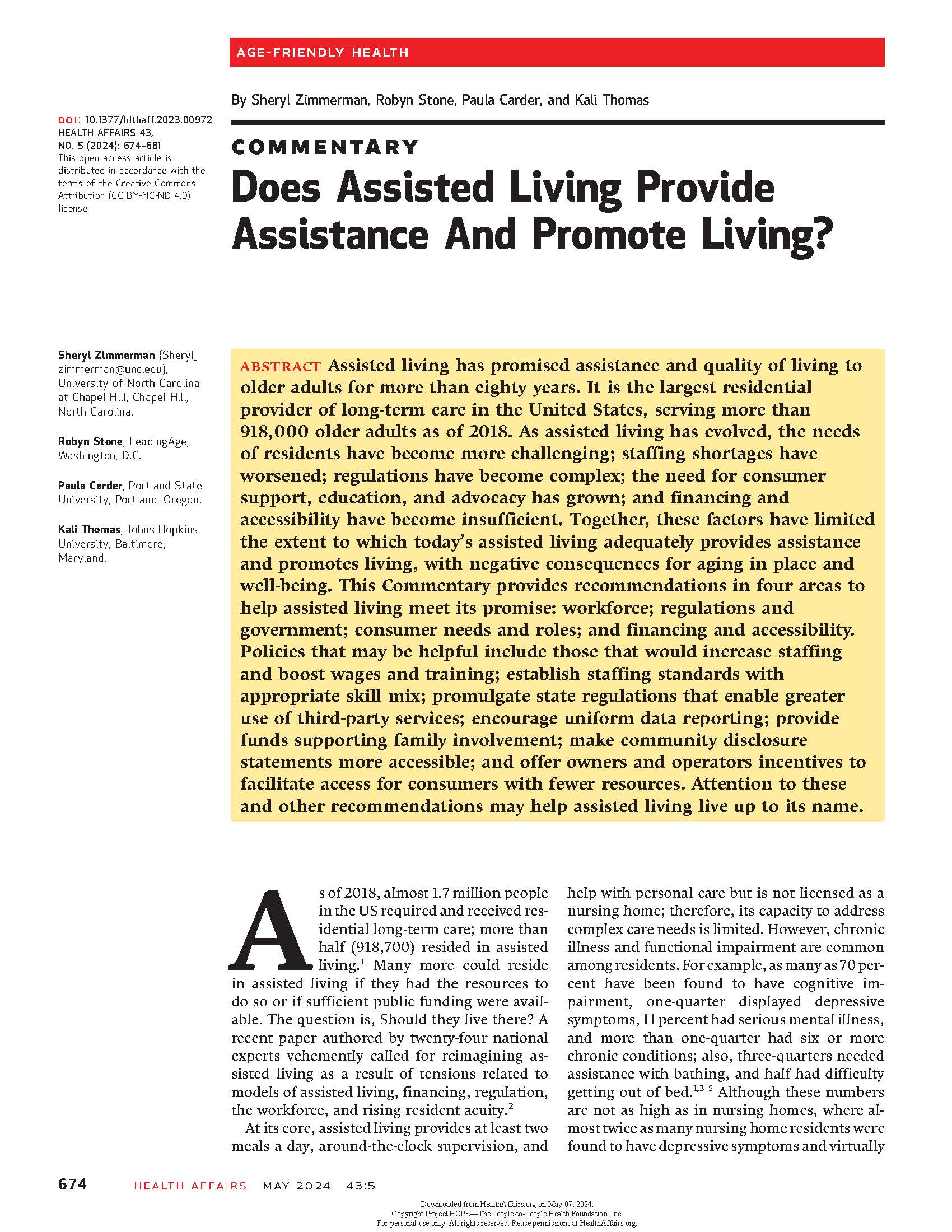Background Loneliness is common among older adults in institutional settings. It leads to adverse effects on health and wellbeing, for which nature contact with peers in turn may have positive impact. However, the effects of nature engagement among older adults have not been studied in randomised controlled trials (RCT). The “Friends in Nature” (FIN) group […]
BMC Geriatrics
Determinants of Received Care Time among Finnish Home Care Clients and Assisted Living Facility Residents: A Time-Motion Study
Determinants of Received Care Time among Finnish Home Care Clients and Assisted Living Facility Residents: A Time-Motion Study
Background Ageing populations and care workforce shortages across Europe are causing challenges for care services for older people. Therefore, it is paramount that limited care resources are allocated optimally, based on the clients’ care needs. Multiple functioning-related factors have been identified that determine the amount of care time clients receive, while organizational and other factors […]
Associations between Specialized Dementia Care, COVID-19 and Central Nervous System Medication Use in Assisted Living: A Population-Based Repeated Cross-Sectional Study
Associations between Specialized Dementia Care, COVID-19 and Central Nervous System Medication Use in Assisted Living: A Population-Based Repeated Cross-Sectional Study
Background Assisted living (AL) is an increasingly common residential setting for persons with dementia; yet concerns exist about sub-optimal care of this population in AL given its lower levels of staffing and services. Our objectives were to (i) examine associations between AL setting (dementia care vs. other), COVID-19 pandemic waves, and prevalent antipsychotic, antidepressant, anti-dementia, […]
Older Adults’ Experiences of Participation in Daily Activities in Swedish Assisted Living
Older Adults’ Experiences of Participation in Daily Activities in Swedish Assisted Living
WHAT THIS MEANS FOR YOU: Eleven older adults interviewed in two assisted living communities in Sweden reported their feelings regarding participation and decision-making in daily activities, such as routine personal and medical care. In a qualitative analysis, residents actively participating in these activities reported they led to feelings of happiness, connection, involvement and safety. However, the organization and work environment dictated the ability of care and nursing staff to involve residents in daily activities, a challenge of which the residents were also aware.
Prevalence and Correlates of Anxiety and Depression in Caregivers to Assisted Living Residents during COVID-19: A Cross-Sectional Study
Prevalence and Correlates of Anxiety and Depression in Caregivers to Assisted Living Residents during COVID-19: A Cross-Sectional Study
WHAT THIS MEANS FOR YOU: A study of 673 family and friend caregivers of residents in AL from two Canadian provinces from Oct 2020 – Mar 2021 found that 29% had clinically significant anxiety and 39% had clinically significant depression. Caregivers who faced personal stressors such as health issues, reduced income, and lack of social support, along with concerns about residents due to COVID-19, were more likely to experience anxiety and depression. Healthcare providers and assisted living staff should be aware of caregivers’ mental health challenges during public health crises and provide appropriate screening and support.


